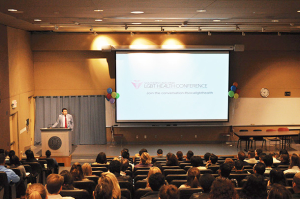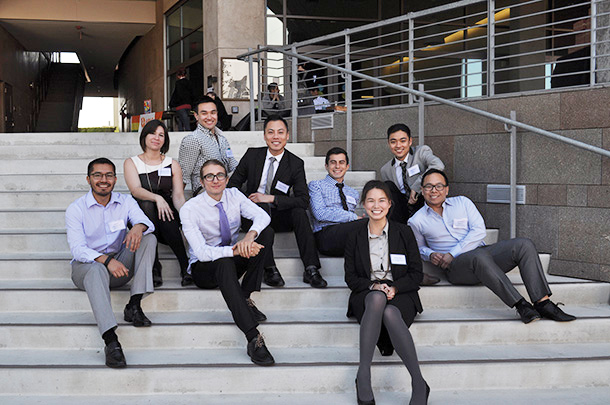For patients in the lesbian, gay, bisexual and transgender (LGBT) community, a routine check-up can bring up topics out of the norm for practicing physicians. As a result, students from the Keck School of Medicine of USC are taking strides to improve health care workers’ understanding of the issues.

The second annual Southern California LGBT Health Conference was held Feb. 20. (Courtesy/Jonathan Nguyen)
“The students are ahead of us on this and driving change,” acknowledged Suzanne Palmer, MD, professor of clinical radiology and medicine and president of the Keck School of Medicine of USC Faculty Council. “They were instrumental in establishing LGBT Thrive, a group on USC’s Health Sciences Campus that includes staff, students and faculty from across the hospitals and medical school, that is helping to integrate LGBT-friendly policies into education and clinical practice.”
Recently, Keck School administrators approved a lecture on LGBT health thanks to the advocacy work of MedGLO, an LGBT organization with more than 70 members at the Keck School.
Two Keck School students also joined aspiring health care professionals from local universities to organize the second annual Southern California LGBT Health Conference.
The event, which was held Feb. 20 at the University of California, Irvine, was intended to foster conversations about LGBT health and wellness in the context of individual lives and stories. The nearly 200 attendees included currently practicing and future health care professionals as well as LGBT community members.
As members of the conference’s executive committee, second-year Keck School students Justin Trop and Jennifer Franks said they would like to see LGBTQ patient care issues better represented in health care curricula. LGBT cultural literacy takes on a new level of importance with a doctor, who focuses on the entire patient.
“If your patient is a trans man in need of a pap smear or is intersex and has retained testes, if you don’t ask your patient about it, you will never know, and they could be in danger,” Trop said.
— John Hobbs


